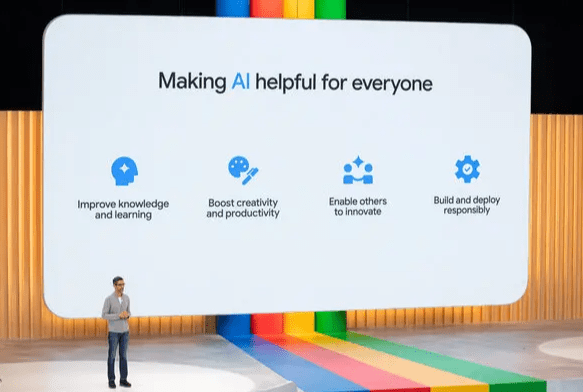Digital Consent in Danger: AI face detection on Adult Sites in UK
In a groundbreaking move, the UK’s Office of Communications (Ofcom) recently unveiled plans to leverage AI face detection technology as a key tool in estimating user ages to restrict minors from accessing adult content online. This development comes in response to the Online Safety Act, which mandates age assurance systems for all apps and websites displaying adult content to prevent individuals under the legal age of 18 from accessing explicit material.

The Online Safety Act, scheduled to take effect soon, will impose fines on platforms that fail to implement effective age verification systems, reflecting the UK’s commitment to safeguarding children online. However, Ofcom acknowledges the challenges ahead, stating that the effectiveness, reliability, and fairness of AI age estimation methods remain uncertain.
Ofcom’s Draft Guidance sets a high bar for age assurance, eliminating weaker age-check methods such as self-declaration, online payment methods accessible to minors, and generic disclaimers. The proposed guidelines only endorse age-check technologies deemed “highly effective.” These include conventional methods like photo ID, banking information, credit card details, digital ID wallets, and mobile network operator age verification. Notably, Ofcom introduces a less common, yet controversial, method – “facial age estimation.”
This innovative approach involves analysing a user’s facial features to estimate their age, a process that could potentially require users to take a selfie to access adult content. However, Ofcom acknowledges the limited evidence supporting the efficacy of facial age estimation and includes a provision for a second age-check via an alternative method if the initial estimate suggests the user is under 25.
A significant concern arises from the potential privacy implications of facial recognition technology. A substantial portion of UK adults, 42%, expresses worry that new restrictions may lead to sharing personal information, with facial recognition data considered particularly sensitive due to its immutability following a data breach.
Ofcom emphasizes its commitment to updating age assurance guidance in consultation with stakeholders throughout the next year, leading up to the anticipated release of final guidance in early 2025. Melanie Dawes, Ofcom’s CEO, emphasizes the need for stricter age-checking methods while urging adult content services to prioritize both child protection and the privacy rights of users.
Despite Ofcom’s push for more stringent age verification, concerns persist. Abigail Burke, a program manager for the UK digital rights organization Open Rights Group, calls for clearer standards in protecting user data. She highlights the potential consequences of sensitive personal data breaches, including blackmail, fraud, and the exposure of individuals’ sexual preferences in vulnerable circumstances.
In a parallel development, the UK’s telecoms regulator, Ofcom, detailed guidelines on how porn sites can verify users’ ages under the newly enacted Online Safety Act. The guidelines offer a choice of measures for sites to comply, including collaboration with banks and mobile networks to confirm a user’s age, or requesting valid credit card details restricted to individuals aged 18 and older. Ofcom acknowledges potential contention surrounding these measures, given the privacy concerns that plagued the previous attempt to mandate age verification for pornography.
The regulatory landscape for age verification in the adult content industry has been tumultuous in the UK. The Online Safety Act represents a renewed effort to address the accessibility of explicit material to underage individuals. Ofcom’s draft guidelines propose a range of age verification methods, prompting industry players to choose approaches aligned with the Act’s “highly effective” standard.
Of note is the inclusion of facial age estimation, a novel method that relies on analyzing facial features to estimate a user’s age. While this approach introduces a unique dimension to age verification, concerns over privacy and the untested nature of the technology cast a shadow over its potential widespread adoption.
Critics argue that the potential for data breaches, collection, sharing, or sale of sensitive personal data is too great a risk. Abigail Burke of the Open Rights Group insists that Ofcom needs to set clearer standards to safeguard user data and protect against catastrophic consequences like blackmail and fraud.
As the regulatory landscape evolves, the adult content industry faces the dual challenge of implementing effective age verification measures while preserving the privacy rights of adult users. Ofcom’s push for more stringent regulations signals a pivotal moment in the ongoing dialogue between regulators, industry stakeholders, and digital rights advocates.
The effectiveness of these measures remains uncertain, with questions lingering about potential workarounds, such as using a VPN to bypass age verification. Ofcom acknowledges that there is no “silver bullet” for online safety but maintains that a combination of legal measures, technological safeguards, education, and parental involvement can collectively contribute to creating a safer online environment for children.
In conclusion, the intersection of technology, regulation, and privacy in the age verification landscape highlights the delicate balance that regulators must strike. As the UK moves towards a more controlled digital landscape, the challenges and debates surrounding age verification for adult content serve as a microcosm of the broader discussions on privacy, consent, and the responsibilities of online platforms in an ever-evolving digital era.
This critical juncture in digital regulation underscores the need for ongoing collaboration between regulators, industry players, and advocacy groups to shape a future where online safety and personal privacy coexist harmoniously. As the world navigates the age of digital consent, the UK’s bold move may set a precedent for other nations grappling with similar challenges in the ever-expanding digital realm. For all my daily news and tips on AI, Emerging technologies at the intersection of humans, just sign up for my FREE newsletter at www.robotpigeon.beehiiv.com






